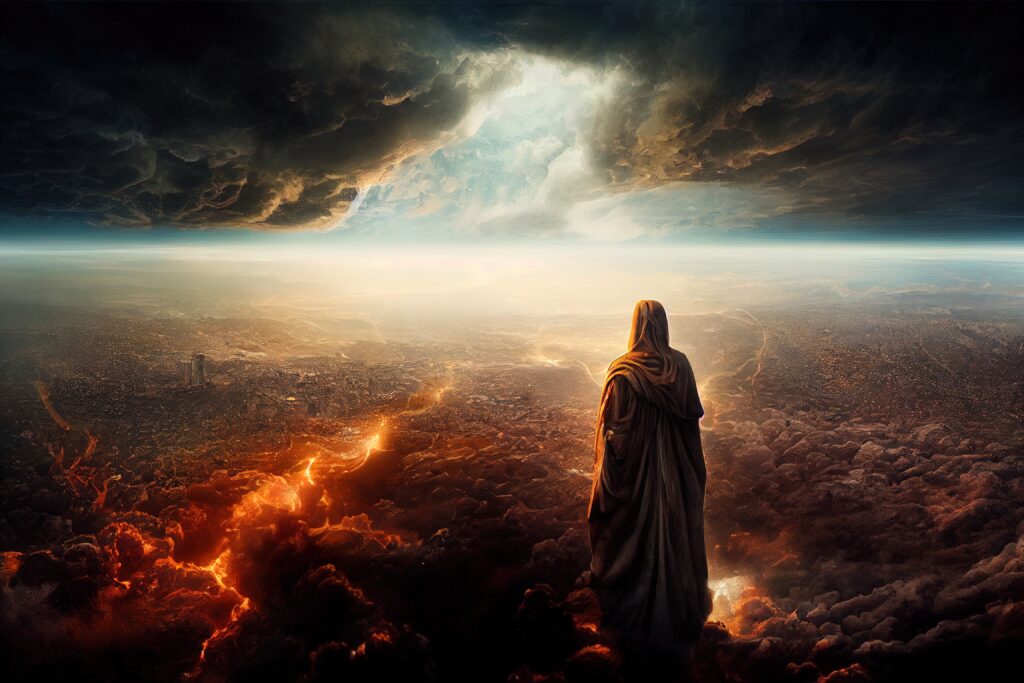
The Mark of the Beast Continued.
“and he said with a loud voice, “Fear God and give Him glory, because the hour of His judgment has come; worship Him who made the heaven and the earth, and sea and springs of waters.” – Revelation 14:7
The word “fear” in English is generally the word we use when we are terrified. As a result, many readers of the Bible think it is appropriate to serve God because we are afraid of Him. But when the word “fear” is associated with God in the Bible, it has a much softer meaning. In the Old Testament, for example, the fear of God means to have reverence or awe for Him: it includes such things as knowing God personally (Prov. 9:10), doing His commandments (Ps. 111:10, Eccles. 12:13), and avoiding evil (Prov. 3:7, Prov. 16:6). In the New Testament, it can mean awe and respectful excitement (Luke 7:16, Acts 2:43). It provides motivation for godly behaviour (2 Cor. 7:1). It is parallel to the honour one would give to a king (1 Pet. 2:17) and the respect one would show toward a superior (1 Pet. 2:18). In modern terms, the fear of God means to take God seriously enough to enter into a relationship with Him, to follow His warnings to avoid evil, and to do His commandments, even the ones that may be inconvenient— or worse. It is a call to live and act as those who know that they will give account to God one day. According to this verse, such a serious calling will be a part of the experience of God’s end-time people.
The issue that arises again and again in Revelation 13 and 14 is worship. Seven times in these two chapters there are references to worship of the dragon, the beast, or the image to the beast (Rev. 13:4, 8, 12, 15; Rev. 14:9, 11).
The overall story is about a satanic triad, which invites the worship of the entire world to worship the beast (and thereby the dragon) in the place of God. The focus is on a universal contest regarding the character of God and whether He is truly worthy of worship. It is the central theme of this part of the book. Ironically, while there are seven references to worship of the dragon and his allies in Revelation 13 and 14, only one time in the same narrative is there a reference to worship of God, and that is in the call to worship the Creator in Revelation 14:7. That makes this verse the central focus of the section. And because Revelation 13 and 14 are at the centre of the book, the call to worship the Creator states the central point of the entire book. Given that this call to worship is in the context of and quotes from the Sabbath commandment of the ten commandments (Rev. 14:7, compare Exod. 20:11), the Sabbath is a crucial issue in the final crisis of earth’s history.
How Is Judgment Related to this everlasting Gospel that goes to the whole world?
the New Testament, judgment is closely related to the gospel. First of all, judgment occurred at the Cross when Satan was defeated (John 12:31, Rev. 5:5–10). Second, judgment language is closely associated with the preaching of the gospel in John 3:18–21 and 5:22–25. Whenever the gospel is preached, people are called into judgment, based on their response to what Christ did on the cross. This call to judgment is the background to the four horsemen (Rev. 6:1–8), Third, the judgment at the end of time examines our response to the hearing of the gospel (John 12:48). The book of Revelation reserves the language of judgment for the end-time phase (Rev. 11:18, Rev. 14:7, Rev. 17:1, Rev. 20:4).
Most importantly, as we have previously discussed, God is on trial here also. The hour of His judgment has arrived. Over the issue of the great controversy, God has put Himself on trial.
